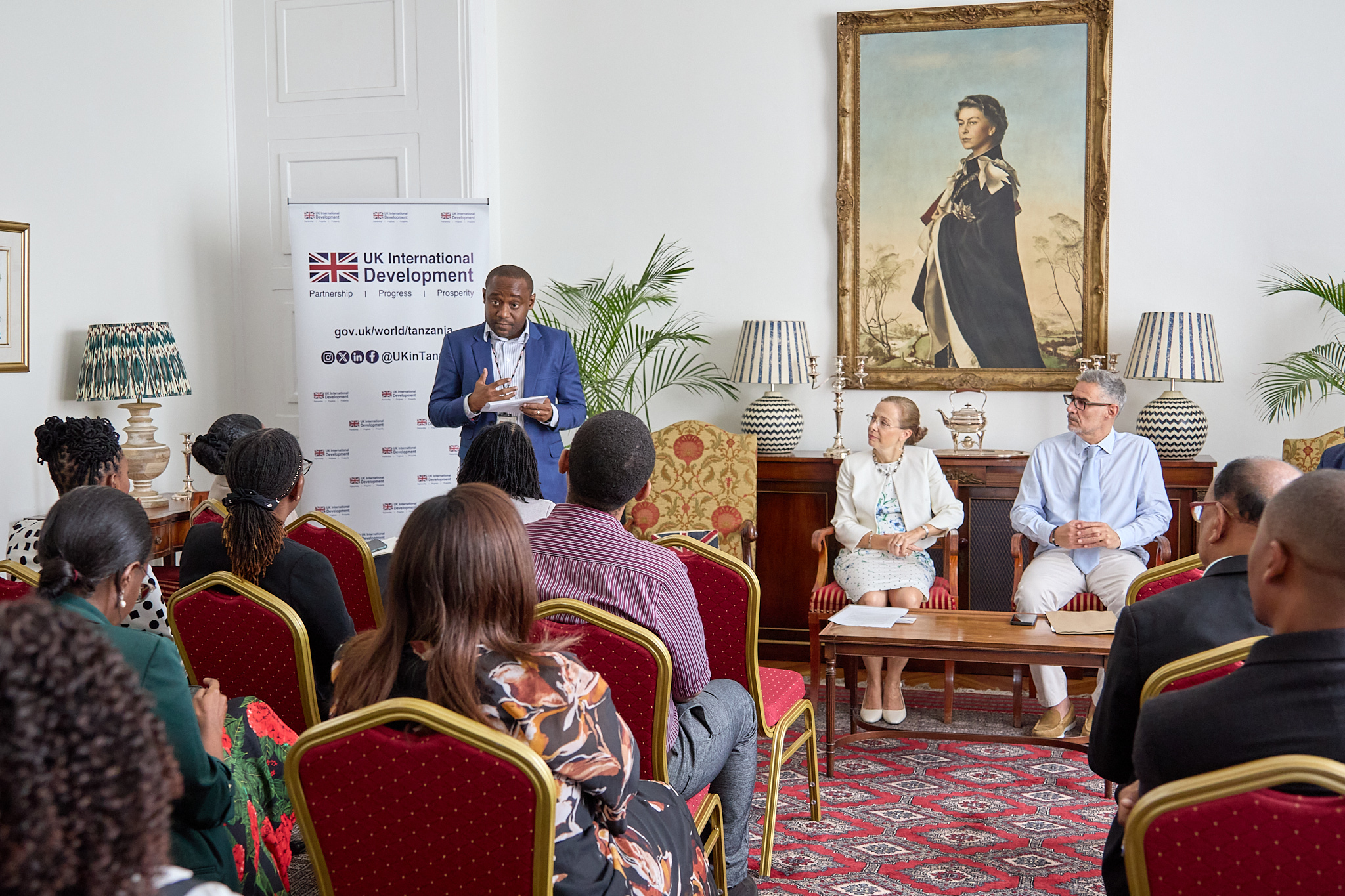
MEETING: Spotlight on “Transmission Zero” – a project advancing genomics in malaria control

On July 23, 2025, the British High Commission in Dar es Salaam hosted a special event spotlighting Transmission Zero — an innovative research partnership between Ifakara Health Institute and Imperial College London focused on eliminating malaria using cutting-edge gene drive technology.
Held at the British High Commission Residence, the event was organized in collaboration with Ifakara Health Institute, Imperial College London, and the Muhimbili University of Health and Allied Sciences (MUHAS). The gathering brought together diplomats, researchers, and policymakers to explore the future of malaria control through advanced genomics.
British High Commissioner Marianne Young opened the evening, emphasizing the UK’s continued support for scientific collaboration in tackling global health challenges. The event featured engaging discussions on gene drive technology — a promising new method that genetically alters malaria-carrying mosquitoes to reduce disease transmission.
Why this matters
Malaria still causes many deaths in sub-Saharan Africa, including Tanzania. Gene drive technology offers a promising new tool to stop malaria by reducing the mosquito population that carries the disease.
Professor George Christophides of Imperial College London, Programme Director for Transmission Zero, explained the technology’s potential. He also stressed the importance of African scientists leading the fight against malaria in their own countries. The project is a close collaboration between UK and African researchers, including partners like Ifakara Health Institute, NIMR, and MUHAS. However, he reminded everyone that gene drive is not a “silver bullet”, but an important part of a broader malaria control strategy.
The big question
Dr. Brian Tarimo from Ifakara Health Institute described the main question Transmission Zero is trying to answer: Can gene drive technology be used safely and effectively to reduce malaria-carrying mosquitoes and help eliminate malaria in Africa?
This question involves science, ethics, and policy. It requires collaboration across labs, communities, and decision-makers. Dr. Tarimo stressed the urgent need to adopt this technology, emphasizing that the benefits—saving lives and ending this deadly disease—far outweigh the risks.
Updates from speakers
Speakers shared updates on Transmission Zero’s progress and addressed the potential impact, ethical considerations, and regulatory pathways surrounding the deployment of gene drive solutions. The dialogue underscored the need for strong partnerships, community engagement, and scientific transparency as Tanzania and global health leaders explore bold innovations to end malaria.
Dr. Nyanda Ntinginya from NIMR emphasized the need to connect scientific discoveries with national malaria policies. NIMR is committed to making sure new technologies fit well within existing public health efforts.
Conclusions and Recommendations
Dr. Ally Olotu, Ifakara Health Institute’s Director of Science, stressed the importance of keeping communities involved and informed. Explaining that policies must be fair, transparent, and focused on people’s well-being.
The event ended with a lively discussion, highlighting the need for ongoing investment—not just in research but also in the systems needed to use these technologies responsibly. This includes regulation, public education, and building local skills.
